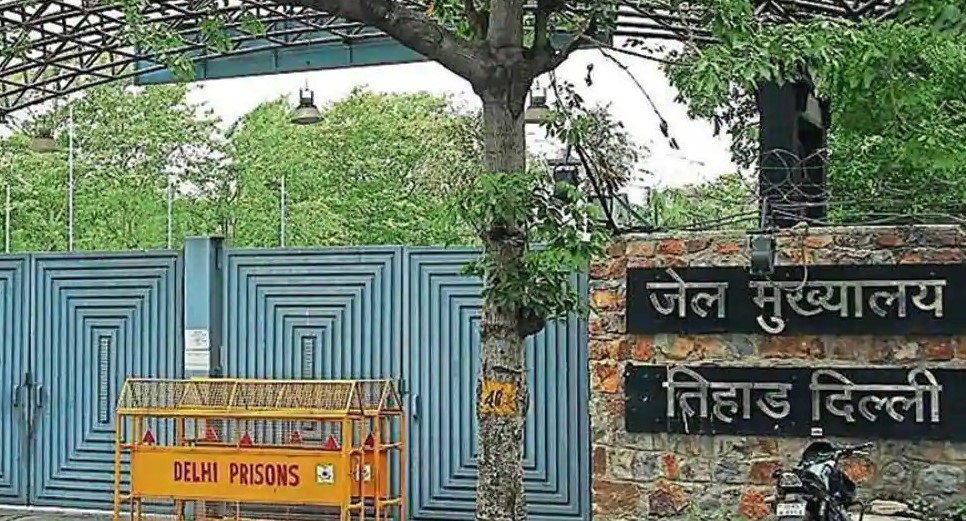Vijay Nahar Singh, 40, was arrested in a murder case eight years ago and is an undertrial inmate at Tihar jail. He was also charged under provisions of the Maharashtra Control of Organised Crimes Act (MCOCA) that has stringent bail terms, which he could not avail. His only connection with the outside world and his eight-year-old daughter was the bi-weekly mulaqaats (meeting with family, allowed under Delhi Prison Rules) for 30 minutes.
Since March, in view of the Covid-19 pandemic, this provision was suspended and only five-minute phone calls — that the prisoner could request to make from the jail’s landline connections — were allowed in the three jail complexes of Tihar, Mandoli and Rohini. The move was to try and contain the virus from spreading inside jails, which could turn into hot spots if it did.
Rajouri Garden resident Singh’s wife, who did not wish to be named, said “I can only speak to him for a few minutes. He is worried about our health. With no money in hand, he can’t even buy anything for himself to boost his immunity during this pandemic,” she said.
The prison department also released around 3,000 prisoners on interim bail and parole from, to allow for social distancing.
However, this has not stopped the virus from penetrating jails — the three complexes, which together house a total of 14,000 prisoners and around 1800 jail officers, have reported 20 cases of Covid-19 till date among prisoners and jail officers. Senior prison officers said that contact tracing so far has revealed that in all the three jails, the virus reached the prison through jail officers, who did not show any symptoms.
Read also : Foreign Nationals From 35 Countries Who Attended Nizamuddin Congregation Move SC Against Blacklisting
Forty-year-old Farhad Khan, a resident of Govindpuri, was convicted in a drugs case in 2015 and is serving a 10-year term. With a history of asthma and chest related illnesses, Khan is an “at-risk” inmate and got bail on May 14.
On June 12, Khan’s wife, who had wished not to be named, the last two months were difficult for them. “I am battling depression and my husband has asthma and vision problems. Since the meetings were stopped, I have no way to know about his health or deposit money for him during Ramzan so that he could enjoy a few treats,” the 45-year-old had said. “I seem to have symptoms of Covid-19.”
Three days after this conversation, she died. Her test results confirmed the virus.
Read also : Complaint Filed Against Actress Rhea Chakraborty In Bihar Court For Abetting Suicide Of Sushant Singh Rajput
“I was allowed only a two-minute phone call with her when I was in jail till my bail,” said Khan, who spoke “Half of that time time would pass in getting clear voice due to patchy network. And now, she has left me within a month.”
The prisoners’ families now, through their lawyers, are demanding that an alternative solutions, such as video conferencing, should be chalked out to solve their problems. Experts too say that the prison must work on starting e-visits for families.
Kalkaji resident Murugan, 21, whose father is an undertrial in a rape case in Tihar, said, “The jail authorities should allow e-mulaquats so that the inmates can at least see their relatives over video and be assured about their health and needs,” he said, adding that he has not been able deposit money into his father’s jail account either. The jail account allows prisoners to withdraw cash and buy provisions from the prison canteens.
Read also : Mumbai attack Accused Tahawwur Rana re-arrested, faces Extradition
The prisons’ inspector general, Raj Kumar, however, said there were no plans to start such “virtual” meetings. Experts said that such virtual meetings could help de-stress the prisoners.
Ajay Verma , former convener of the National Forum for Prison Reforms — a group of lawyers that fights for implementation of reforms across prisons — said, “It will reduce stress of the prisoners. A few states have begun work on it. Visitors can make online registration and meet the prisoners through video conferencing without travelling to prisons”.
The Punjab and Haryana High Court allowed the states under their jurisdiction to begin virtual meetings for prisoners and their families, while a petition in the Odisha High Court is also requesting the same.
Read also : Uttarakhand HC: ‘Same Sex Couples can live Together’
Senior advocate Vikas Pahwa said that prisoners still in jail should be given proper facilities to touch base with their families especially in times of a pandemic. “The state government should take some steps for conducting e-mulaqaat because unusual situation calls for unusual actions,” he said.
Sunil Gupta, former law officer of Tihar for over three decades, said that all jails in the prison complexes were equipped with video conferencing equipment used for court hearing as well as the legal aid lawyers. “The same facilities can be used by the prisoners to meet their families,” he said.
Source Link




